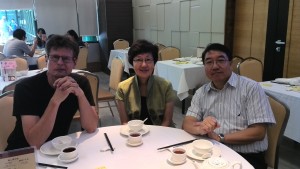We asked 3-7-year-old children: – Think of a situation when another child comes to tease you, what do you do? 761 children answered to the question and described their strategy in addressing bullying. Often children seeked help from the teacher or tried to negotiate with the bully. However, children had a lot of different strategies, for example, hitting the bully or starting to cry. Children’s interactivity increased as children grew older and the amount of withdrawn strategies decreased with age. Especially interesting was that we were able to trace the connection between children’s interview strategies and their observed activities. Because interview and observation were independent measures, the found connections describe something real. The reference information is below:
Reunamo, J. T., Kalliomaa, M. Repo, L., Salminen, E., Lee, H-C & Wang, L-C. (In print). Children’s strategies in addressing bullying situations in day care and preschool. Early Child Development and Care.

